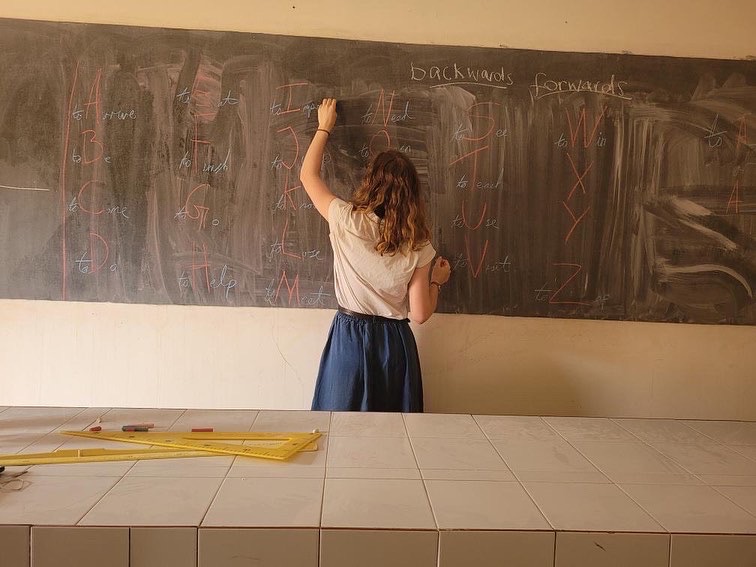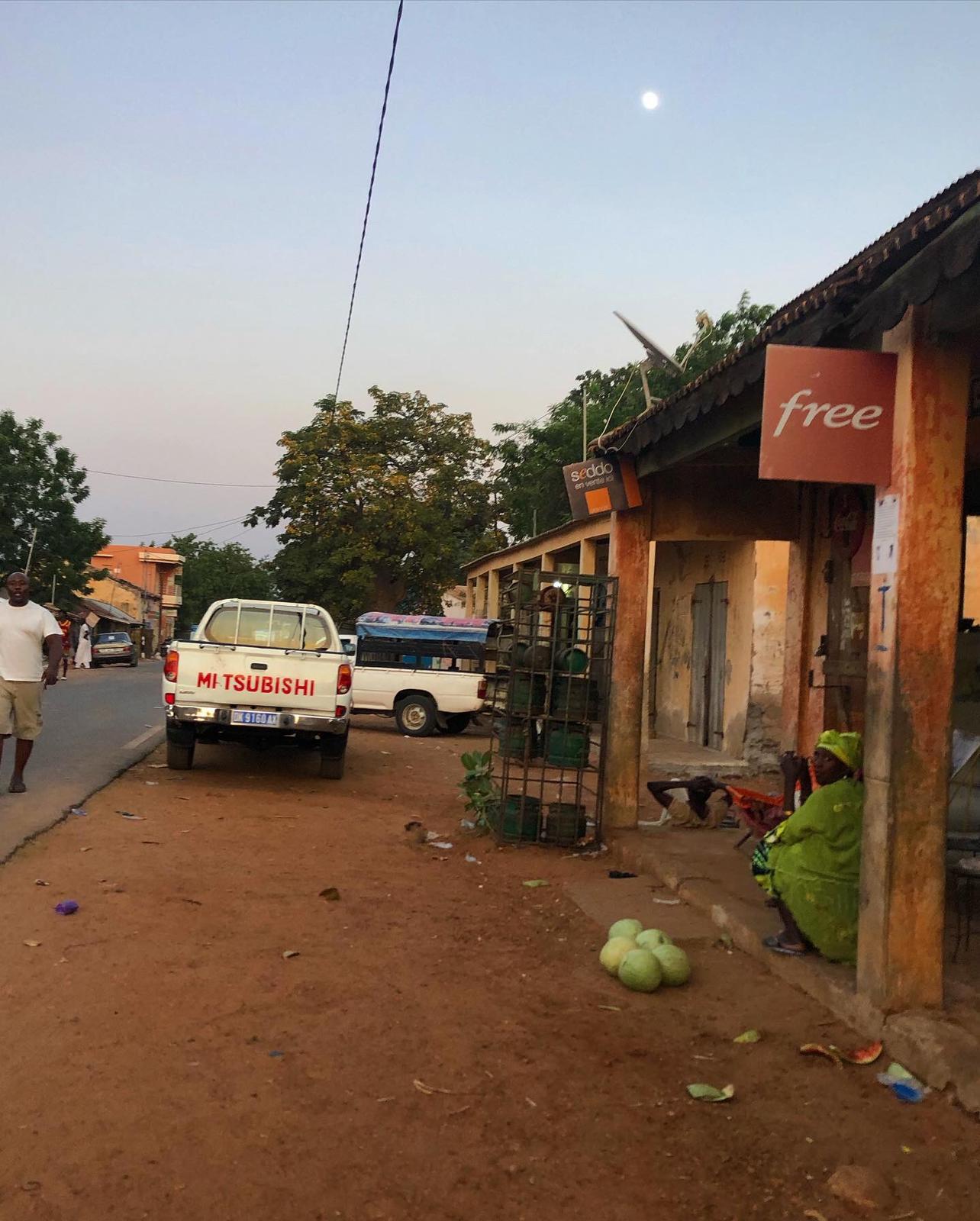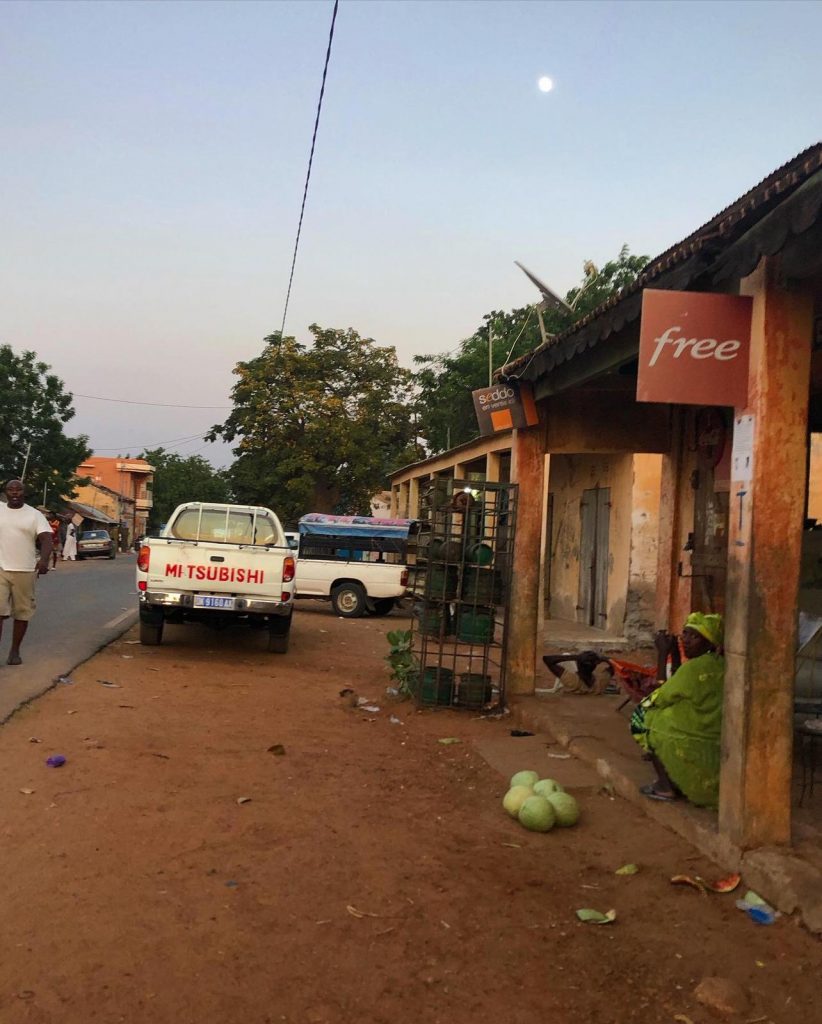Your basket is currently empty!
-
Family Matters

“Of course, you’re my sister.” Muhammad’s words of encouragement came as a touching surprise. I’m not great with tech at the best of times, but in Senegal, without an Apple Store, I had no idea how to get my frozen phone repaired. It was day three or four of the screen not budging. Where to go? Google search? YouTube tutorial? It turned out the answer lay in the room across the hall. Within hours of asking, my phone was being dissected and repaired by local legend ‘DJ Portable’ after a free ride and recommendation by host brother Muhammad. (Can report – despite being wiped – it returned functioning perfectly.)
What does it take to build a trusting relationship with a family from a different culture? More than living with them for the best part of a year; but that alone goes a long way. Birthdays, bad days, western favourites and Muslim holidays spent together are the bare minimum of nine months’ shared experiences when you live with a typical Senegalese family. Mine – the Ndiayes – threw in personalities, ages, delicious home cooking and resident sheep: so each day became a chance to get to know each other better.
We – Fionn, my project partner and I – entered this house thankful but guilt-ridden, apologising for our presence from the start. The relationships blossomed when we accepted their kindness and tried to make it up to them in other ways. Weekly joys lay in discovering what they took for granted, them shedding light on our western customs, and a general sense of exchange and valuable company.
One week we had no running water for four days. We shared out what little we had stored, and resolved next time to fill up a few more jerry cans in case of emergency. One evening I was asked what food we ate in the UK. A month or so later, spaghetti bolognese became a regular family meal – prepared by a different handful of helpful family members each time, with fresh baguettes and extra spice served in Senegalese addition. We picked mangoes together, played copious rounds of Uno, and traded Attaya and Kanquiliba (Senegalese tea) for Earl Grey and English Breakfast. Other exchanges included help with homework and lesson plans, naïve questions asked and answered and a great many board games and dances.
Around July, school drawing to a close, Alouine, youngest of the six Ndiaye siblings at fourteen, was having a frustrating argument with some of the rest of the family. He began crying – something I’d never seen this jokey, confident boy let himself do before. Most of the argument was in shouty bursts of Wolof (the mother tongue), so I dared not join in or attempt peace making for fear of misunderstanding. Everyone was very angry: these were high stakes being discussed. It all got too much, and at one point I decided to walk away from the noise to a sofa, guiding Alouine with me. I sat beside him in silence and never found out what that argument was about. I know he’d be too proud to tell me. But I waited with him while the dust settled. Because he’s my brother.


